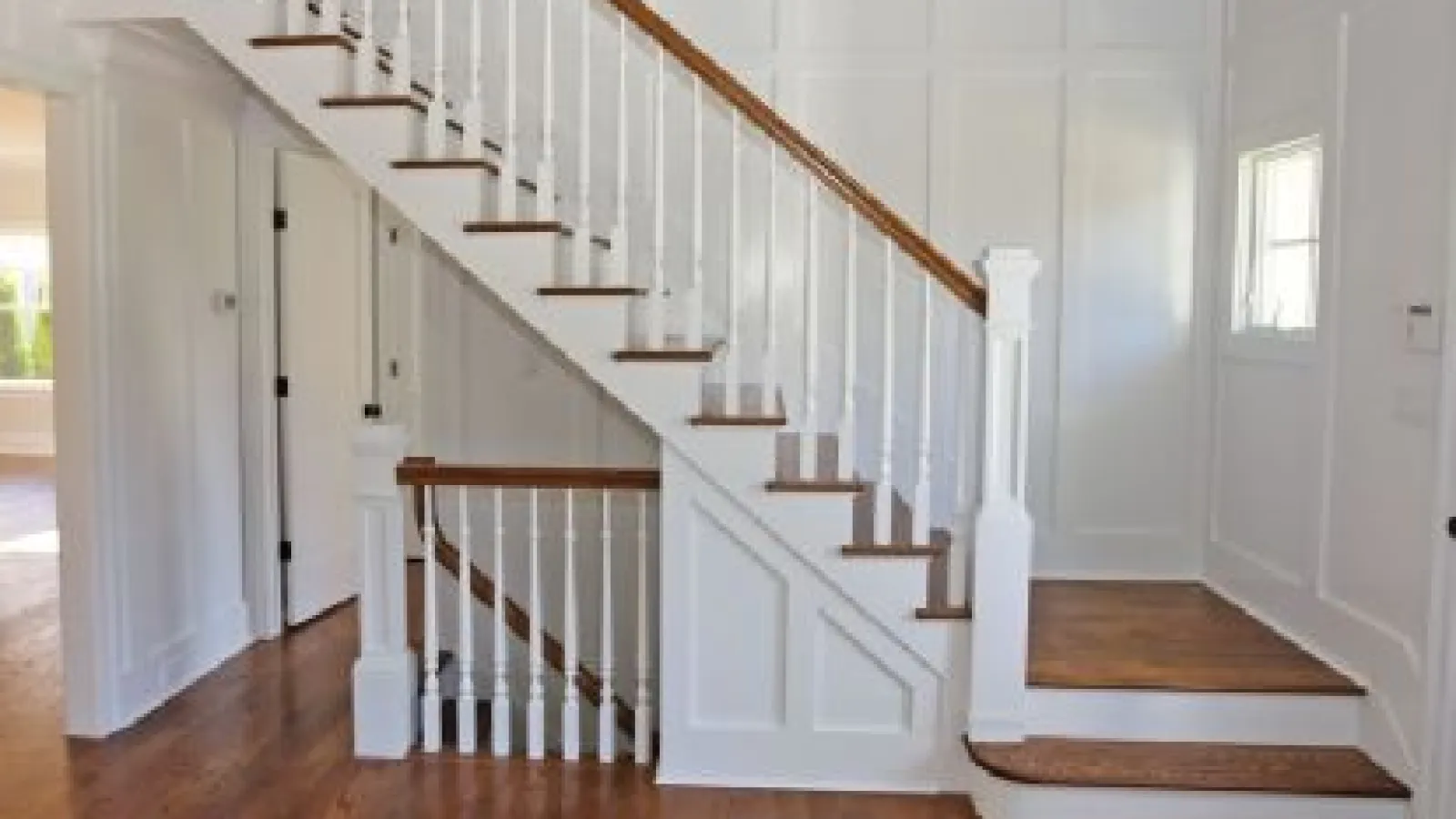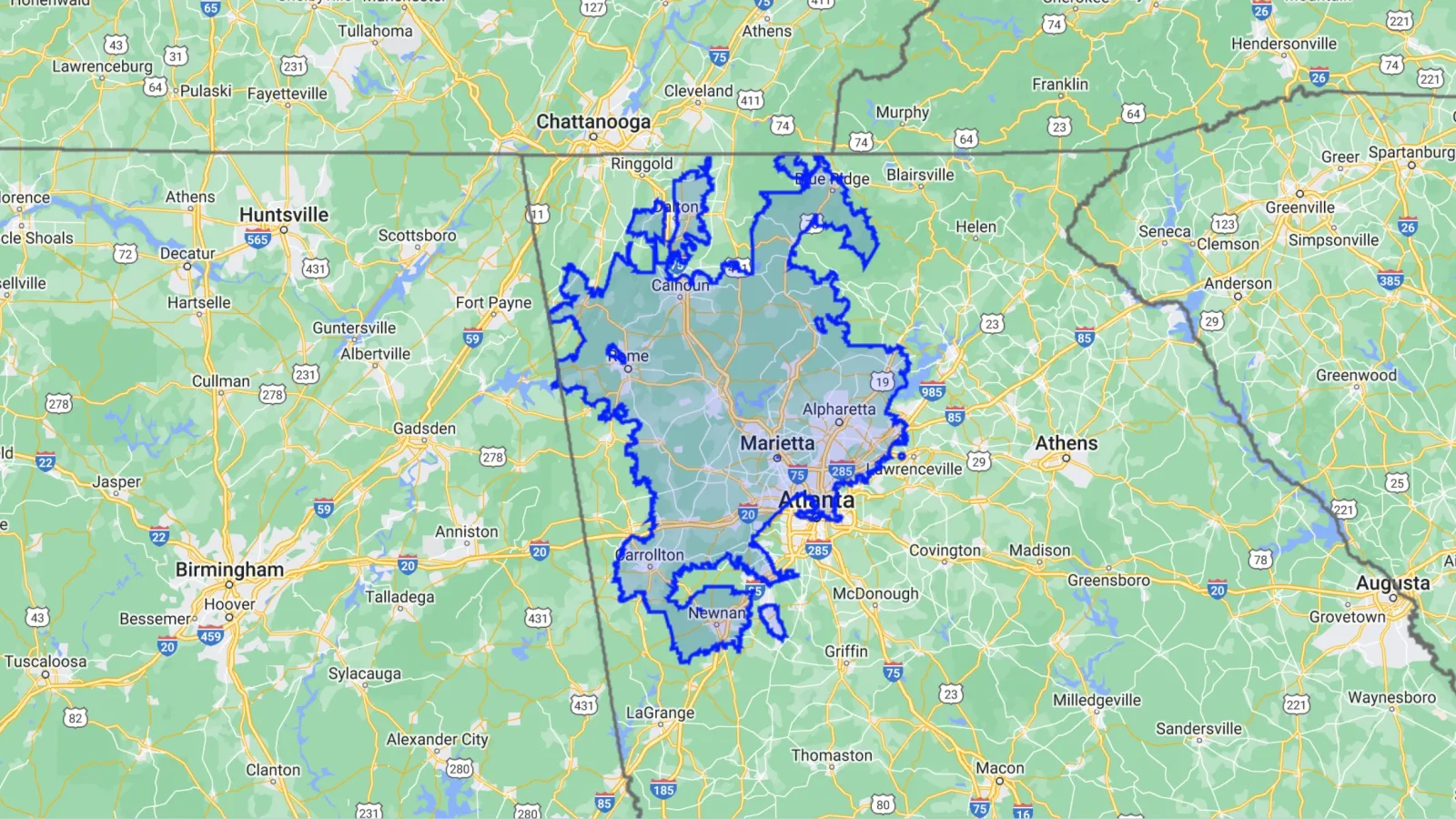It's the middle of a warm Atlanta summer and your first floor is nice and cool. As you head up the stairs you are met with heat and humidity with every step. This is not an uncommon complaint that our customers voice! As the temperatures get hotter, more customers ask us "why is my upstair hotter than the rest of my home and how do I fix it?"
As expected, heat rises in your 2 story home and often times stays stagnant on your second floor. The great news is that this situation is not something that you need to settle for. There are solutions to reducing heat on your second floor and eliminating the hot spots in your home.
Why Does Your Second Floor Feel Like an Oven?
- Heat goes up- You learned it in science and now you are seeing the theory in real life. Heat goes up and cooler air goes down. It just makes sense that your upper level will become hotter than your lower levels.
- Insulation is Lacking- The barrier between your hot attic and second floor ceiling is your insulation. Insulation does settle over time. This settling reduces the effectiveness dramatically. Topping off your insulation or even increasing the R value will improve the heat transfer between floors.
- Hot Roof or a Short Attic- Your roof (most often times a dark color) will absorb heat. If you are lucky enough to have mature trees that shade your home, you may have a little relief. That absorbed heat transfers into your attic space. A short squatty attic does not allow for much of the heat to mix with the attic air. the heat has to go somewhere and with poor insulation, you can expect it to transfer to your upper rooms
- One System for Both Floors- You may have a single system trying to keep up with the temperature of both floors. A zoned system allows you to control the temperature in various areas of your home. Consider zoning your heating and air system if it serves multiple areas for a more controlled and even temperature.
- Aging HVAC System- "If it's not broken then don't fix it..." A working system does not mean that the system was originally properly sized and ducted for the nuances in your home. Also, an aging system may still be cooling but the output and efficiency may be lacking. HVAC systems last 10-15 years depending on the way that it was installed and maintained over the life of the system. Simply put, an aging system may just not be able t keep up with the demand of summer heat. Considering a more efficient model will help cool your home more effectively and save you money in energy costs! A System Design Expert can provide you with a free in home estimate and evaluation of your current HVAC set up. Various new system options can get your upper floor cool and comfortable.
- Are your Ducts all in a Row?- Loose, hanging, torn, and undersized ductwork can be the reason your upper floor is too hot. Your ductwork distributes cold air throughout your home. Any leaks can dramatically reduce your airflow and cooling capabilities. One solution may be to just have your ductwork sealed. Schedule a system tune up and your ductwork will be spot checked for issues!
- A Tune Up is a Must- You wouldn't skip an oil change in your car. Don't skip your HVAC maintenance! Something as simple as a dirty air filter can cause your HVAC system to break down, and become less efficient. Not to mention the 25 other maintenance steps we take to verify your HVAC is working per manufacturers specifications.
Home Hacks to Better Cool Your Upper Level
- Turn of the Lights- We don't want you to sit in the dark. However, turning the lights off during peak sunshine times will help reduce additional heat from being generated. We love candles too.. but they also generate heat. Avoid burning candles midday as well.
- Avoid Using Heat Generating Appliances- Prepare your meals in the evening cool hours. Overnight crock pot meals are a great option. Run your clothes dryer during the coolest parts of the day. Using your oven or stove during the peak temperature hours of the day will only increase the temperature in your home. Remember heat rises.
- Close Your Blinds- The sun is beating on your roof already increasing the temperature on your upper level. Close the blinds in all rooms, especially those rooms that have direct sunlight beating down on them. While we are discussing your windows, sealing these areas will also help with air leaks.
- Stop the Revolving Door- Every time the door is opened, cool air escapes and the hot exterior air circulates into your home. The less the exits are opened, the better you keep your cool.
- Change your Air Filter- A dirty air filter can wreak havoc on your AC. Not only can it restrict air flow, but it also causes your system to work that much harder to cool your second floor. Make sure you regularly check and change your air filter.
- Insulate- There is a major misconception with homeowners in regards to their attic insulation. Just because insulation exists in your attic, does not mean that it is effective. Insulation settles over time causing it to become less effective. Topping off your insulation can dramatically improve your second floor comfort level.
- Turn on your Fans- A circulating fan can make you feel a cooling breeze, but also help better circulate the air in your home. If your first floor is cooler than your second floor, placing a fan at the base of the stairs pointing upward can send some cooling to the upper level. While this is a temporary solution, having your HVAC system looked at is crucial to solving your second floor heat trap problems.
- Consider Additional Cooling Options- We so often hear that only certain rooms on the second floor are hotter than others. For example, a bonus room above a garage often will be hard to temperature control. Not only is the floor below not temperature controlled, but often the space above the ceiling is poorly insulated as well. Consider either adding a separate system to your second level or a ductless system specifically for the hottest space. This will allow for a more controlled cooling ability.
How Do I Know I Need a Repair Visit?
If you have noticed changes in your ability to keep your upstairs cool, there may be cause for concern. Some examples that may be a warning are: your set thermostat temp is never satisfied, your system constantly runs, warm air blowing from vents, or poor air flow.
First thing is to reach out to the experts to come and evaluate your system. A thorough check of your whole system will provide you with options to repair and best improve your comfort.
You may be advised to replace your system due to major complications. A System Designer will provide you with a free in home replacement estimate and give you the necessary options to correct design flaws that may be the culprit to your second floor being hotter.
How Can Guardian Help with Uneven Temperatures and a Hot Second Floor?
Guardian has a team of HVAC Service Experts and HVAC System Designers that can evaluate your current system. We offer flat rate pricing with no hidden fees for all of our repairs. Our HVAC replacement estimates are always free. Your System Designer will address any code violations, original design flaws, and verify system sizing to make sure that your new system will address any concerns.
Guardian offers same day HVAC repairs. In the case of an HVAC replacement, Guardian has a variety of financing options and can even install next day to make the process seamless for you! We will be with you every step of the way to cool your second floor and make your home comfortable again. Our highly trained team know how important staying cool is and will guide you through the process.
Contact us today for more information in cooling your second floor.


